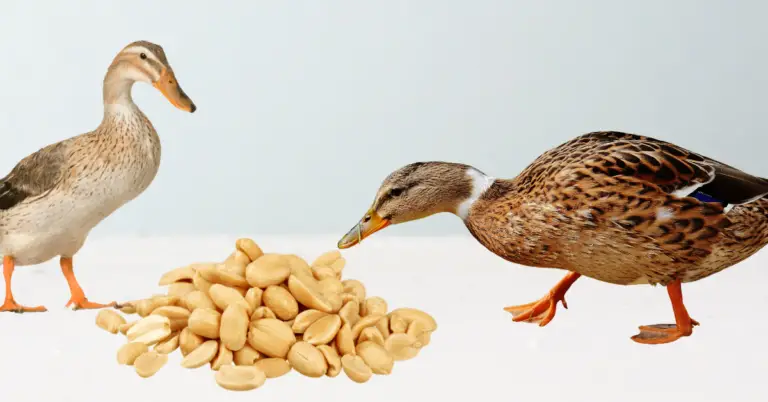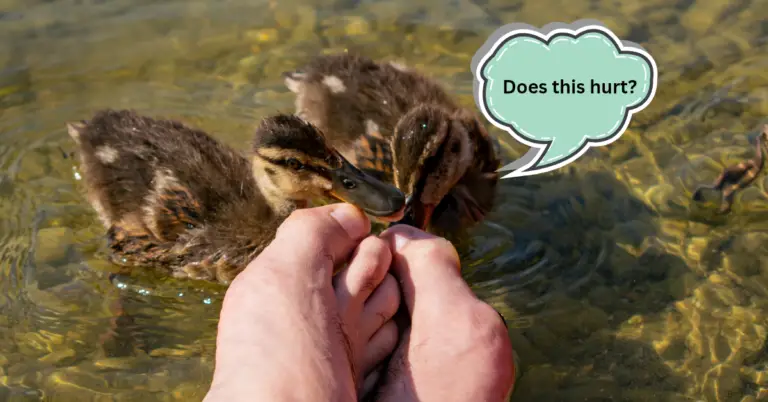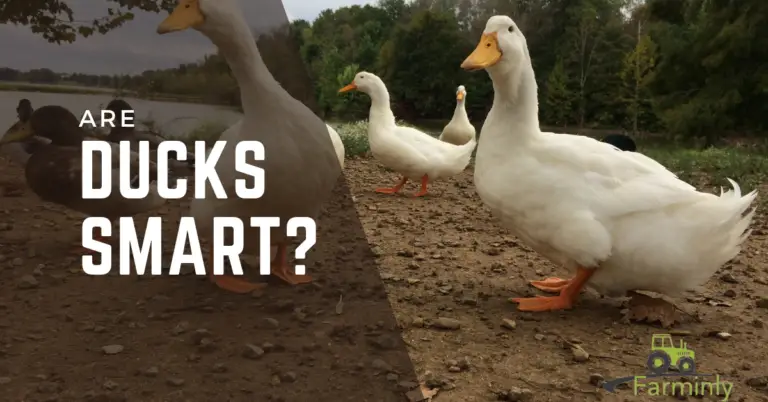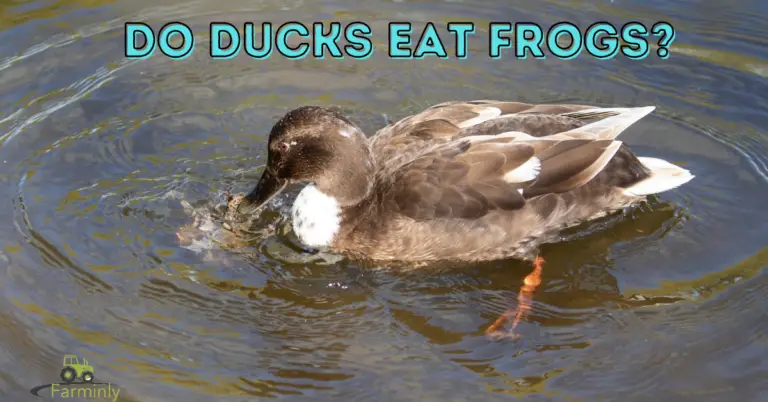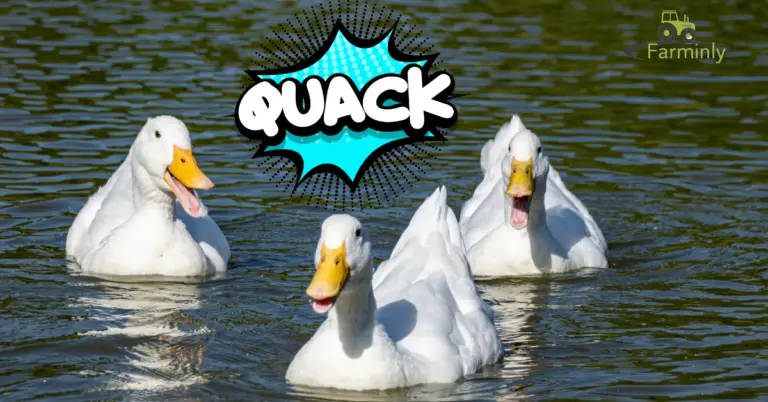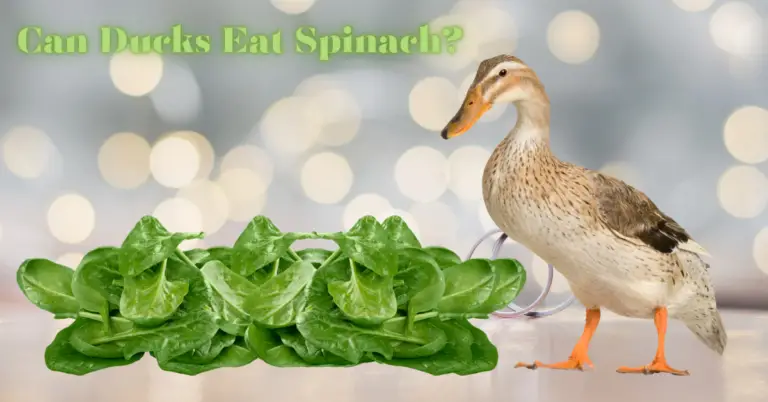Can Ducks Eat Chocolate? All You Need To Know
Ducks are omnivorous birds that consume a varied diet of insects, plants, and small animals. As with any animal, it is important to consider their dietary needs and what foods may harm them.
One such food that is frequently consumed by humans but is not suitable for ducks is chocolate. In this article, we’ll see why ducks cannot have chocolate and everything you need to know about feeding ducks chocolate.
Can Ducks Eat Chocolate?
No, ducks cannot eat chocolate. Chocolate contains theobromine, which is harmful to ducks and can cause various health problems, including vomiting, diarrhea, seizures, and even death.
Feeding your ducks chocolate can cause digestive problems, nutritional imbalances, and an unhealthy dependence on the food. Therefore, it is essential to avoid giving your ducks chocolate and provide them with a balanced diet that meets their dietary needs and promotes their health and well-being.
Is Chocolate Toxic to Ducks?

Chocolate is toxic to ducks and can cause various symptoms, including vomiting, diarrhea, seizures, and even death. The severity of the symptoms depends on the amount of chocolate ingested and the size and age of the duck. Other reasons include the following;
- Digestive problems: Chocolate contains high amounts of fat and sugar, which can upset the digestive system of ducks. Eating chocolate can lead to diarrhea, bloating, and abdominal pain, which can be uncomfortable and even dangerous for birds.
- Addiction: Chocolate contains substances that can be addictive to ducks, such as sugar and theobromine. Feeding ducks chocolate can create an unhealthy dependence on the food and lead to a lack of interest in other essential foods.
- Chocolate Poisoning: Theobromine is a stimulant that affects the central nervous system of ducks. It can cause several health problems, including restlessness, tremors, seizures, and even death. Theobromine poisoning can occur if a duck consumes a large amount of chocolate.
- Weight Gain: Chocolate is a high-calorie food that can lead to weight gain in ducks if consumed regularly. Overweight ducks risk developing health problems like joint pain and heart disease.
- Dehydration: Chocolate contains caffeine, which can cause dehydration in ducks. This is because caffeine is a diuretic, which increases urine production and can lead to water loss.
- Malnutrition: Feeding ducks chocolate can lead to malnutrition because it does not give them the nutrients they need to maintain their health. Ducks require a balanced diet of grains, seeds, and aquatic plants to stay healthy.
Is it Safe for Ducks to Have Chocolates?
If your duck consumes chocolate, it is essential to take immediate action to minimize the risk of serious health complications. Here are some steps to follow:
- Identify The Symptoms: Keep an eye on the ducks and watch for any signs of illness, such as vomiting, diarrhea, lethargy, or seizures. The severity of the symptoms depends on the amount of chocolate ingested and the size and age of the duck.
- Remove Any Remaining Chocolate: If any chocolate is left, remove it from the area to prevent further ingestion. Make sure to dispose of the chocolate safely, so other animals cannot access it.
- Contact A Veterinarian: If you suspect your duck has ingested chocolate, contact a veterinarian immediately. They can assess the situation and provide advice on how to proceed.
- Provide Supportive Care: If the duck shows symptoms of illness, provide supportive care, such as keeping them warm, hydrated, and calm. Do not try to force them to eat or drink anything, as this can make the symptoms worse.
- Monitor The Duck’s Condition: Keep an eye on the duck’s condition and watch for any changes in its behavior or symptoms. If the symptoms worsen or do not improve, contact the veterinarian again.

Other Treats for Ducks
Ducks enjoy a variety of treats, and many options are safe and healthy for them to consume. Here are some treats that you can give to ducks instead of chocolate:
- Vegetables: Ducks enjoy a variety of vegetables, including leafy greens like spinach and kale, carrots, peas, and corn. Vegetables are a good source of vitamins and minerals essential for the duck’s health.
- Fruits: Ducks enjoy fruits like berries, melons, and grapes. These are a good source of natural sugars and antioxidants.
- Grains: Ducks love grains such as wheat, barley, and oats. You can feed them these in their natural form or as bread.
- Mealworms: Mealworms are a good protein source and a favorite treat for many ducks.
- Cooked Rice And Pasta: Ducks enjoy cooked rice and pasta, which are easy to digest and provide them with energy.
- Seeds: Seeds such as sunflower and pumpkin are also a favorite treat for ducks and are a good source of fat and protein.
Conclusion
It is best to avoid feeding chocolates to your ducks and instead provide them with a natural diet of grains, seeds, and aquatic plants. If you feed ducks other things, do so responsibly and with their best interests in mind.
If you want to avoid feeding chocolates to ducks, here are some things to look out for:
- Signs that the ducks are not healthy: If ducks exhibit signs of illness or injury, it is important to avoid feeding them. Feeding sick or injured ducks can worsen their condition and potentially spread disease to other ducks.
- Signs that the environment is not suitable for ducks: If you are in an unsuitable area, such as a busy road or a polluted body of water, it is best not to feed them. Feeding ducks in unsafe areas can put them at risk of injury or death.
- Signs of aggression or territorial behavior: If the ducks are becoming aggressive or territorial, it is best to avoid feeding them. Aggressive ducks can pose a danger to humans and other animals and can cause stress and anxiety for the ducks themselves.
References

